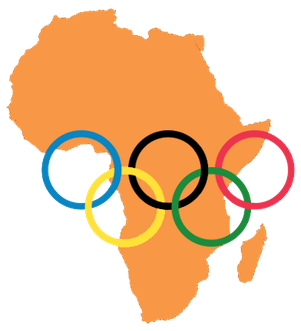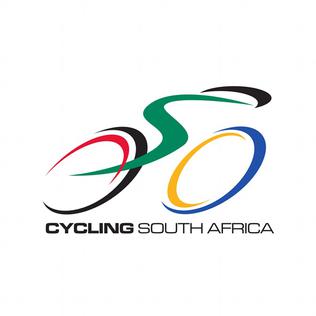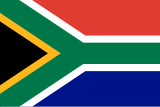
A National Olympic Committee (NOC) is a national constituent of the worldwide Olympic movement. Subject to the controls of the International Olympic Committee, NOCs are responsible for organizing their people's participation in the Olympic Games. They may nominate cities within their respective areas as candidates for future Olympic Games. NOCs also promote the development of athletes and the training of coaches and officials at a national level within their geographies.

The African Games, formally known as the All-Africa Games or the Pan African Games, are a continental multi-sport event held every four years, organized by the African Union (AU) with the Association of National Olympic Committees of Africa (ANOCA) and the Association of African Sports Confederations (AASC).

The Association of National Olympic Committees of Africa is an international organization that unites the 54 National Olympic Committees (NOCs) of Africa. It is currently headquartered in Abuja, Nigeria. It serves as the successor to Standing Committee of African Sports or Comité permanent du sport africain founded in 1965 in Brazzaville, Republic of Congo.

Cycling South Africa or Cycling SA is the national governing body of cycle racing in South Africa. Cycling SA is a member of the Confédération Africaine de Cyclisme and the Union Cycliste Internationale (UCI). It is affiliated to the South African Sports Confederation and Olympic Committee (SASCOC), as well as the Department of Sport and Recreation SA. Cycling South Africa regulates the five major disciplines within the sport, both amateur and professional, which include: road cycling, mountain biking, BMX biking, track cycling and para-cycling.
South Africa under apartheid was subjected to a variety of international boycotts, including on sporting contacts. There was some debate about whether the aim of the boycott was to oppose segregation in sport or apartheid in general, with the latter view prevailing in later decades. While the National Party introduced apartheid in 1948, it added sport-specific restrictions from the late 1950s, on interracial sport within South Africa and international travel by nonwhite athletes. The international federations (IFs) governing various sports began to sanction South Africa, both in response to the new restrictions and in reflection of the broader anti-racism of national federations in newly independent postcolonial states. By the early 1970s, South African national teams were excluded from most Olympic sports, although South Africans competed in individual events in some, mainly professional, sports through the 1980s. Although from the mid-1970s the National Party relaxed the application of segregation provisions in relation to sport, this failed to alleviate the boycott, which continued until the end of apartheid.

South Africa competed at the 2012 Summer Paralympics in London with a team of 62 athletes and finished 18th on the medal table.

Mind Sports South Africa (MSSA) is recognised by Act of Parliament as the national controlling body for mind sports in South Africa.
South Africa did not compete at Olympic Games from 1964 to 1988, as a part of the sporting boycott of South Africa during the apartheid era. The South African National Olympic Committee (NOC) was expelled from the International Olympic Committee (IOC) in 1970. In 1991, as part of the transition to multiracial equality, a new NOC was formed and admitted to the IOC, and the country competed at the 1992 Summer Olympics held in Barcelona.

South Africa competed at the 2016 Summer Olympics in Rio de Janeiro, from 5 to 21 August 2016. This was the nation's seventh consecutive appearance at the Games in the post-apartheid era, and nineteenth overall in Summer Olympic history. The South African Sports Confederation and Olympic Committee (SASCOC) sent the nation's largest ever delegation to the Olympics, with a total of 138 athletes, 93 men and 45 women, competing across 15 sports.

Athletics South Africa is the national governing body for the sport of athletics in South Africa, recognised by the IAAF, and also a member of Confederation of African Athletics. The association is based in Johannesburg.

The South African Table Tennis Board (SATTB) is the national governing body responsible for table tennis in South Africa. The organisation has been affiliated to both the ITTF since 1950, and the African Table Tennis Federation. SATTB is based in Pretoria.

Judo South Africa (JSA) is the governing body of Judo in South Africa, and a member of the world governing body, the International Judo Federation (IJF), along with the African Judo Union. JSA is also a member of the South African Sports Confederation and Olympic Committee (SASCOC), which, alongside Sport and Recreation South Africa (SRSA) control all organised sport in South Africa.

The South African Tug of War Federation (SATF) also known as the South African Tug-of-War Federation is the national governing body for the development and promotion of the sport of Tug of War (Afrikaans: Toutrek) in the Republic of South Africa. SATF is based in Claremont, Cape Town. The Federation is a member of the Tug of War International Federation (TWIF). SATF is also an affiliate of the South African Sports Confederation and Olympic Committee (SASCOC), which, alongside Sport and Recreation South Africa (SRSA) supervises all organised sport in South Africa.

South African Shooting Sport Confederation (SASSCo) formerly known as South African Shooting Sport Federation (SASSF) is the governing body for shooting sports in South Africa. SASSCo is the highest body responsible for the development and promotion of target shooting sports in South Africa. SASSCo is registered with both SASCOC and Sport and Recreation South Africa (SRSA) as the officially recognised overall federation for shooting sports in South Africa, and is also affiliated to the International Shooting Sport Federation (ISSF) and the African Shooting Sport Federation (ASSF).

Softball South Africa (SSA) is the national governing body for softball in South Africa. Softball South Africa is responsible for the promotion and development of softball in South Africa. Softball South Africa is affiliated with the world governing body World Baseball Softball Confederation, and is responsible for the administration of the men's and women's national softball teams. SSA is also affiliated with SASCOC.

DanceSport South Africa (DanceSport SA) (DSSA), formerly the Federation of Dance Sport South Africa (FEDANSA), is the governing body for dancesport and related dance styles in South Africa. It is an full member of the world governing body World DanceSport Federation (WDSF) and recognised by SASCOC. DanceSport SA is the sole custodian and controlling body of organised dancesport in South Africa.
Jean-Claude Ganga was a Congolese sports administrator.
The African Karate Federation is the continental governing body of the sport karate in Africa. The UFAK is a non-governmental continental organisation. It has legal personality and financial autonomy. It is non-political, non-profit, non-denominational and cannot accept any racial or other discrimination and performs its activities on an amateur basis in compliance with the principles set forth in the Olympic Charter, duly recognised by the World Karate Federation (WKF), Association of African Sports Confederations (AASC), Association of National Olympic Committees of Africa (ANOCA).
William Frederick Blick is a Ugandan engineer who has served as a member of the International Olympic Committee (IOC) since 2018.














